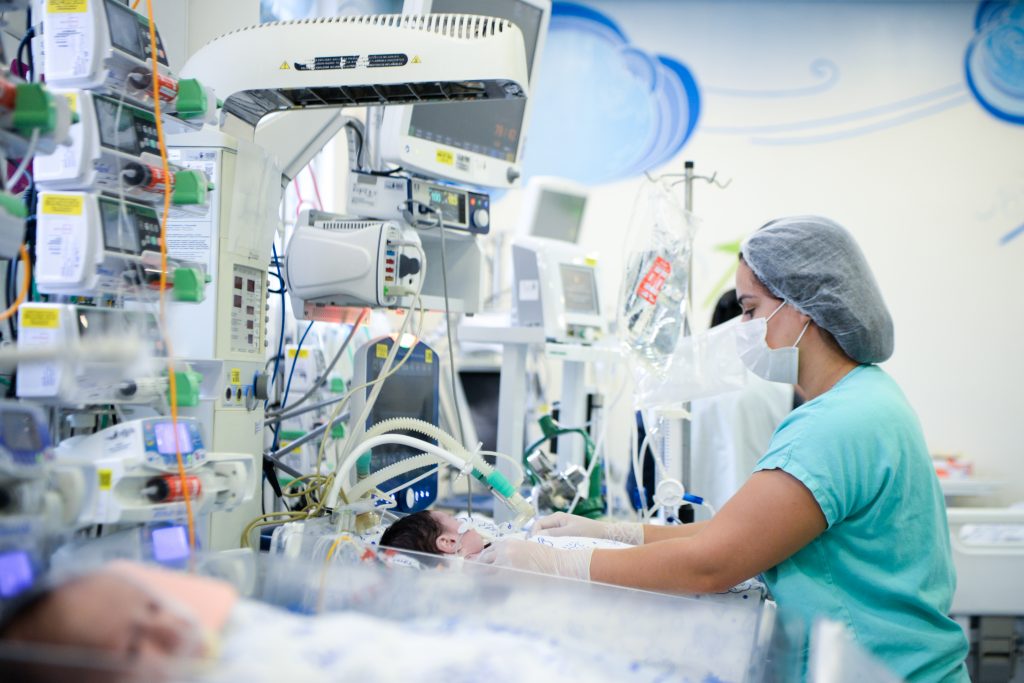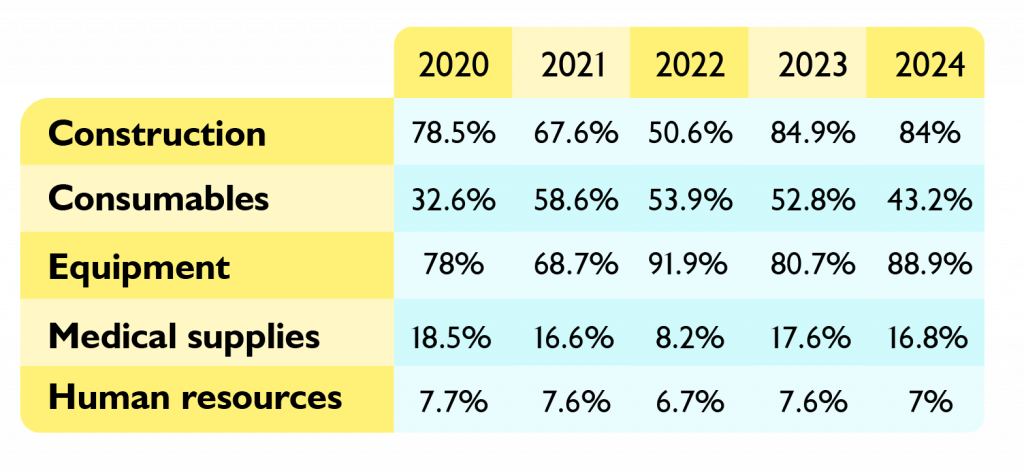Donations complement the Brazilian Public Health System funding and ensure excellence at Pequeno Príncipe
In 2024, almost 90% of the resources allocated to purchasing equipment came from donations. In construction, the percentage was 84%; and in consumables, more than 40%

In yet another challenging year from an economic and financial point of view for philanthropic hospitals that serve the Brazilian Public Health System (known as SUS), Pequeno Príncipe Hospital demonstrated in 2024 the strength of social support for the continuity of its services. A reference in high and medium complexity pediatric care, the institution recorded an operational deficit of US$ 8.6 million in health assistance, but managed to maintain the quality of care with the support of donations, which corresponded to 17.6% of its gross revenue.
The discrepancy in the SUS fee schedule is one of the main challenges for the financial balance of philanthropic hospitals like Pequeno Príncipe, since it establishes remuneration values for services well below market reality. A consultation with a specialist doctor, for example, is priced at US$ 2 in the SUS, however in a private hospital it can cost up to US$ 130. The cost of a head tomography scan with sedation in the private network exceeds US$ 740, while the SUS fee schedule establishes the cost as US$ 22.52.
With this great distortion of values, Pequeno Príncipe finds in society the support it needs to continue offering qualified care, with a modern technological park, cutting-edge medicines and an infrastructure that is constantly improving. Historically, the equipment that enables adequate care has been acquired with resources donated by society. In 2024, for example, almost 90% of the resources used for these acquisitions came from donations. In the maintenance and improvements of infrastructure, the impact of donations is also significant and in the last year it exceeded 80%. See more details in the table below.

“With over a century of history, Pequeno Príncipe has always relied on the support of partners to ensure its excellence. The resources raised from society are essential to cover part of the operational deficit and enable investments in research and infrastructure improvements,” emphasizes executive director Ety Cristina Forte Carneiro. The main forms of support include contributions via tax incentive laws, direct donations, sponsorships, and government transfers.
Renegotiation with the SUS
In addition to the essential support from society, another determining factor for the sustainability of Pequeno Príncipe in 2024 was the renegotiation with the SUS, which guaranteed a 20% increase in monthly transfers, in addition to the victory in a lawsuit against the Federal Government, which resulted in new financial transfers.
Even so, the challenge remains, because in addition to the discrepancy in the SUS fee schedule, many medications, orthoses, and prostheses needed to treat children with complex conditions are not provided by the Public Health System. “The SUS fee schedule was created in the 1980s and has had few updates over the years. Some new procedures, medications and exams, among other items, have not yet been incorporated into this fee schedule, which prevents us from receiving payment for the procedure performed,” explains the technical director of Pequeno Príncipe, Cassio Fon Ben Sum.
This is the case, for example, of molecular exams, which did not exist when the SUS fee schedule was created and are now essential for refining diagnoses and defining the best treatments. Pequeno Príncipe offers some of these exams with resources raised from society. “We continue to constantly negotiate with the agencies that manage the Brazilian Public Health System to demonstrate the needs of our patients, who have very complex conditions, are often very young and need the best medicine to have a chance at a quality life,” points out the director.

